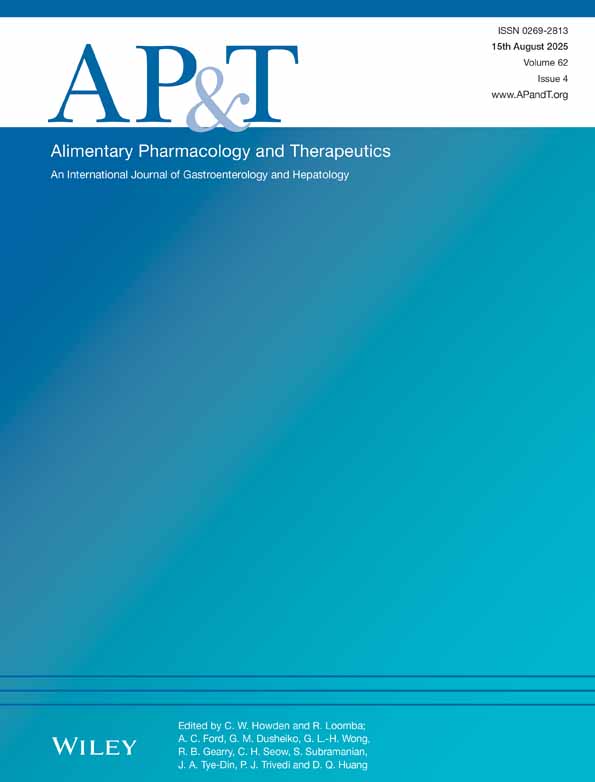Effect of prucalopride, a new enterokinetic agent, on gastrointestinal transit and anorectal function in healthy volunteers
Abstract
Background
: Prucalopride (PR) is a novel 5-HT4 agonist enterokinetic compound.
Aim
: To evaluate its effect on bowel function, gut transit and anorectal function in healthy volunteers using a double-blind, placebo-controlled crossover study.
Methods
: Twenty-four healthy volunteers (12 men, 12 women, mean age 25 years, range 20–53 years) were randomly assigned to 1 mg/placebo or 2 mg/placebo (PL). The trial consisted of five consecutive 1 week periods: no drug treatment, PR treatment or PL, washout, PL or PR, no treatment. Subjects maintained a diary of bowel function during the entire study period. Total intestinal transit time (TITT), mean colonic transit time (MCTT) and anorectal function (anal manometry, rectal sensitivity and rectal compliance) were assessed at the end of both treatment periods. Electrocardiography and blood sampling were performed for safety analysis; blood sampling was also used to check compliance.
Results
: No subjects withdrew from the study. Treatment with PR 2 mg showed a statistically significant increase in mean number of weekly stools (11.5 vs. 7.1 compared to PL, P = 0.04) and in the percentage of loose/watery stools (48 vs. 12% compared to PL, P = 0.005). Within 1 week, stool frequency and consistency returned to baseline values when treatment was stopped. MCTT was shortened significantly with both doses, i.e. from 35 h on PL to 25 h on PR 1 mg (P = 0.01) and from 43 h on PL to 22 h on PR 2 mg (P = 0.02). Anorectal function was unaffected by PR. Transient and moderate headache occurred in nine subjects during PR treatment and in six subjects during PL treatment.
Conclusion
: Prucalopride is well tolerated by healthy subjects and has a marked and consistent effect on stool frequency and consistency, and on colonic transit. In the present study prucalopride did not affect visceral sensitivity or sphincter function. It holds promise for patients with slow transit constipation.




